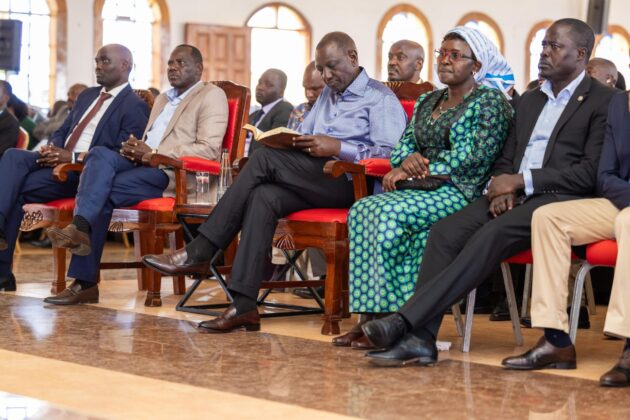
President Ruto defends SHIF amid health sector transition challenges » Capital News
NAIROBI, Kenya Oct 27 – President William Ruto has defended the Social Health Insurance Fund (SHIF) that has caused radical changes in the health sector saying the inadequacies being experienced are due to teething problems.
Speaking during a church service in Moiben, Uasin Gishu, President Ruto emphasized that the new Social Health Insurance Fund (SHIF), despite its shaky rollout is set to transform healthcare access.
“I know we have had challenges because we are transitioning from what it was to the new model. In every transition they will be challenges, which we are managing. Last week we disbursed money for hospital and dispensaries and next week will do the same until transition is complete,” he said.
On October 1, the government discontinued the National Health Insurance Fund (NHIF) and directed all healthcare providers and patients to shift to SHIF.
However, initial glitches in the SHIF system left many patients unable to access medical services, causing widespread confusion and distress across the country.
President Ruto remains steadfast, assuring Kenyans that his administration will not be swayed by these setbacks.
He affirmed that his government is committed to upholding the constitution by ensuring that disadvantaged households have equitable access to healthcare services.
“We want to ensure that anyone regardless where they have financial capacity or not can seek medical services without being turned back because they don’t have money. That’s the essence of the transition from the old model for delivery of health and the current model,” President Ruto said.
So far over three millions Kenyans have registered afresh with the President saying the new registration will ensure that no Kenyan is left out from accessing benefits rolled out under the retooled public healthcare system anchored on the Universal healthcare care pillar.
“We must use the benefit of using data and that’s the reason why we are asking every citizen to register so that we can be able to plan our health as a nation and know whats the disease load in which area and we are able to plan,” President Ruto said.
For salaried employees, the monthly contribution rate is 2.75 percent of gross salary with a minimum contribution of Sh300 per month and no maximum contribution. Employers must make this remittance by the ninth day of the subsequent month.
For non-salaried persons, the household will make an annual contribution set at a rate of 2.75 percent of the household income with a minimum contribution of Sh300 per month (and no maximum amount payable annually) within 14 days before the lapse of the annual contribution.
The Regulations further stipulate that data will be collected on non-salaried households to determine and estimate the household’s ability to pay SHIF contributions based on housing characteristics, accessibility to basic services and household composition and characteristics.
About The Author